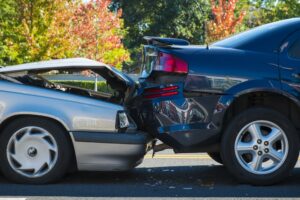
If you are not responsible for causing your accident, you may have the right to file an insurance claim or civil lawsuit against the at-fault party. You should never be expected to cover the costs of another party’s negligent or reckless actions. With help from an experienced Atlanta personal injury lawyer, you can determine who should be held accountable for your losses and recover total compensation for your suffering.
Here is more about what you can expect from your accident claim when you are not liable and the damages you may recover if your claim is successful.
Georgia Tort Laws
According to Georgia state tort laws, Georgia civil courts and insurance companies follow fault-based laws. Here, when one party’s negligence is the cause of a victim’s injuries or damages, that party will be found liable and held accountable for the victim’s suffering. The liable party will then be ordered to compensate the victim for economic and non-economic damages.
Economic damages account for every monetary loss, whereas non-economic damages ensure you are paid for how your life has been affected by the accident you were involved in and the injuries you sustained. Court systems may also have the discretion to award punitive damages when they find the liable party’s actions malicious, intentionally harmful, or grossly negligent.
Get the strong arm
Filing an Insurance Claim After an Accident
If you are not at fault for an accident, one of the best ways to recover the compensation you are owed is by filing a claim with the insurance company. Since Georgia is a fault state, you will generally start with the liable party’s insurance provider when filing an insurance claim. If you were involved in a car accident, for example, you may be able to file a claim with the liable party’s auto insurance provider.
Georgia law requires all drivers to carry a minimum of $25,000 per person and $50,000 per accident in bodily injury liability coverage, and $25,000 per accident in property damage liability coverage. However, motorists are under no legal obligation to carry uninsured or underinsured motorist coverage, comprehensive, collision, or other optional insurance coverages.
If you purchased no-fault insurance coverage, also commonly known as personal injury protection (PIP), you may also have the opportunity to file a claim with your personal auto insurance provider. However, when you file a claim with your insurance company, it is likely they will increase the amount you are required to pay in monthly premiums. This way, the insurance company does not lose money by paying out on your claim.
Damages Insurance Pays For
Many accident victims believe they can recover compensation for every loss by filing a claim with the insurance company, however, this is not the case. The insurance company is unlikely to cover your damages in full. They will pay the minimum amount allowable under the law or even deny you the compensation you deserve if they can get away with it.
Insurance typically only covers the types and amounts of coverage purchased by the policyholder. For example, if you were injured in a work accident, you may be entitled to worker’s compensation benefits through your employer’s worker’s compensation insurance provider. The insurance company would be expected to cover your medical bills, provide you with up to two-thirds of your average weekly income, and be ready to offer vocational rehabilitation benefits where appropriate.
How Civil Lawsuits for Accidents Work
As you can see, it is not unusual for insurance companies to leave victims with excess damages. Fortunately, when you are not at fault for an accident, you can still recover every loss you experienced due to someone else’s negligent actions.
To do this, you will need to file a civil lawsuit. Also commonly referred to as a personal injury claim, when you file a civil claim, you are entitled to total compensation for your compensatory damages. There is no limit to the compensation you can be awarded for your economic and non-economic damages. This way, the at-fault party can be compelled to repay you for every loss without the same restrictions you might see in an insurance claim.
GA Shared Fault Laws
You may not be primarily responsible for causing the accident, but if you are partially at fault, it could significantly impact the outcome of your case. You can still file a claim if you are partially at fault under Georgia’s modified comparative negligence laws under Georgia Code §51-1-1.
Here, as long as your portion of fault does not exceed the state’s threshold of 49%, you can recover compensation for the portion of the accident that is not your fault. For instance, if you forgot to put on your seatbelt before you got behind the wheel and were subsequently hit by a drunk driver, the defendant might argue that you are partially at fault for the injuries you suffered because you were not wearing a seatbelt. If the court found you 15% liable, you could only expect to recover 85% of the compensation you are awarded.
If you hope to protect yourself and maximize your financial compensation despite sharing liability for the accident, ensure you have a skilled personal injury attorney who will fight back when the at-fault party blames you.
Contact a GA Personal Injury Lawyer for Help Today
When you are not at fault for an accident, there is no reason why you should be stuck covering the costs. Do not be surprised if the liable party blames you for causing the accident or argues that you share fault for your damages. When you have a reputable Georgia personal injury attorney at John Foy & Associates on your side, you can protect your right to total financial compensation and ensure fault is accurately evaluated in your case.
Schedule your free, no-obligation consultation today to learn more about how the personal injury claim process works and how much compensation you could be awarded. You can reach us through our online contact form or by phone to start today.
404-400-4000 or complete a Free Case Evaluation form





